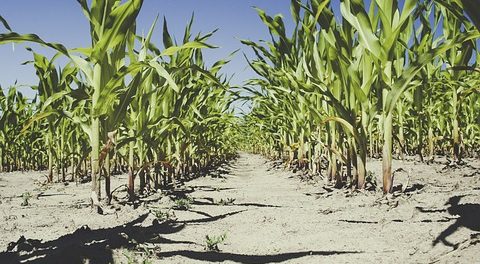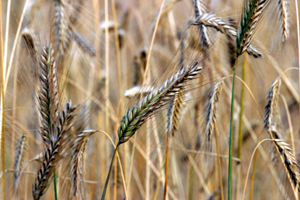One of a series of significant votes in the European Parliament on 24th October last involved the rejection of the authorisation of GM crops. So what reason did the MEPs give for reject these crops?

One of three significant votes in the European Parliament on 24th October last involved the rejection of the authorisation of GM crops. So what reason did the the MEPs for reject these crops? You can read the full motions for a genetically modified soy, oilseed rape and maize at the links provided.
As we reported here recently, GUE/NGL MEP Lynn Boylan stated that this process of authorisation has been rejected numerous times. “It is beyond frustrating to have a situation whereby President Juncker admits that the procedure is undemocratic but yet his Commission fails to bring forward a credible alternative. Instead they continue to pursue the same route over and over again.”
The motions are accompanied by the evidence MEPs used to to justify their refusal to authorise. These are the footnoted references hyperlinked to the bottom of the page. They shed a light on processes and proceedings in Europe. For each motion, see the links for soy, oilseed rape and maize.
So what did the MEPs say, in coming to the conclusion they did? We’ve read through the motions and below present an indicative selection of their statements.
General points from the motions pertaining to all crops
“Herbicide-tolerant genetically modified crops result in higher use of complementary herbicides than their conventional counterpart.” (“complementary” here refers to accompanying, typically glyphosate-based products)
“More than 20 different varieties of glyphosate-resistant weeds have been documented in scientific publications”.
“According to the EFSA pesticide panel, on the basis of data provided so far, conclusions on the safety of residues from spraying genetically modified crops with glyphosate formations cannot be drawn; additives and their mixtures used in commercial formulations for spraying glyphosate can show a higher toxicity than the active ingredient alone, a number of studies show that glyphosate formulations can act as endocrine disruptors” (EFSA is the European Food Safety Authority)
“The development of GM crops tolerant to several selective herbicides is mainly due to the rapid evolution of weed resistance to glyphosate in countries that have relied heavily on GM crops; glufosinate-resistant weeds have been observed since 2009;” (glufosinate is another non-selective herbicide, similar in some ways to glyphosate)
Specific to the variety of maize rejected for approval, the MEPs said:
“the residues from spraying with glufosinate were not assessed; it cannot therefore be concluded that genetically engineered maize 1507 is safe for use in food and feed;”
“targeted insects developing resistance to Cry proteins is a ‘major threat to the sustainability of the Bt technology’”
Specific to the oilseed rape rejected, the MEPs said:
“an independent study concludes that the opinion of EFSA should be rejected on account of major flaws and substantial gaps”
“key specific areas of concern relate to the lack of a 90-day feeding study on rats, the lack of assessment of the residues of the complementary herbicides on imported food and feed, the possible negative health consequences thereof and the inadequacy of the environmental monitoring plan;” (complementary here means accompanying, or matched)
“on the basis of the lack of a 90-day sub-chronic toxicity report on rats, the French Agency for Food, Environmental and Occupational Health and Safety duly rejected the application”
“The residues from spraying with the complementary herbicides were not assessed; it cannot therefore be concluded that this genetically engineered OSR sprayed with glyphosate and glufosinate is safe for use in food and feed; (OSR is oil seed rape)
“importing different types of herbicide tolerant OSR lines can result in multiple-resistant feral populations (‘gene stacking’) causing or exacerbating herbicide management problems of road side habitats.”
Specific to the Soy rejected the MEPs said:
“the applicant provided a 90-day toxicological feeding study which was rejected by EFSA due to its insufficient quality; as a result, the risk assessment contains no such study, a fact which was criticised by a number of Member State competent authorities; this data gap is unacceptable, especially given that 2006 EFSA guidelines require such a study”




